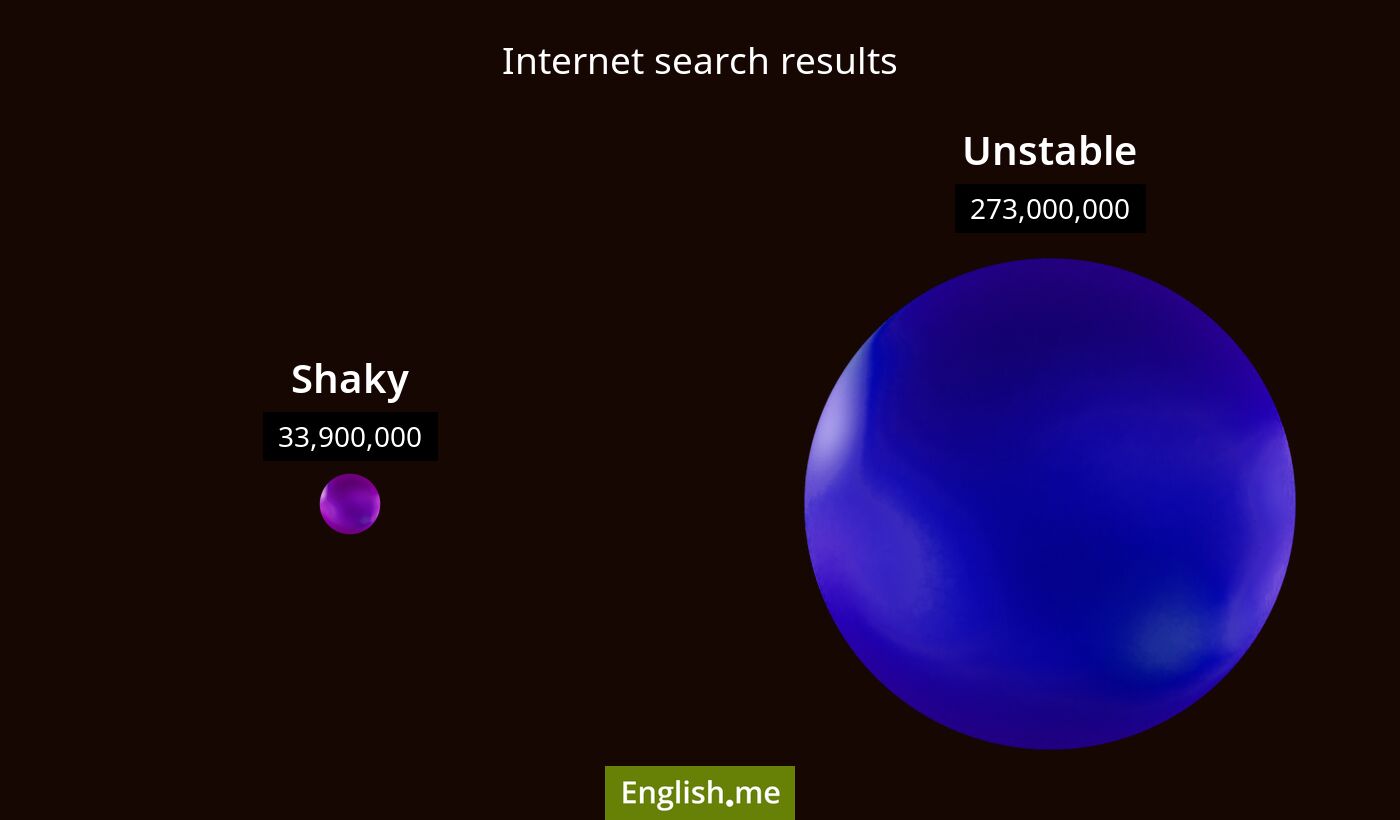"Shaky" vs. "unstable": a linguistic balancing act
Reviewed and edited by  Lloyd Cooper 09/10/2024, 17:24
Lloyd Cooper 09/10/2024, 17:24
English.me team member

 What is similar?
What is similar?
Both words describe something that lacks stability or firmness and can refer to physical structures, emotional states, or conditions that are uncertain or unreliable.
 What is different?
What is different?
Shaky often implies a wobbly or trembling physical state and can also refer to something that is not firm or secure in a broader sense, including confidence or evidence. Unstable is used more formally to describe systems, structures, or entities that lack stability and can change or fail, and is often used in technical or scientific contexts.
 Which one is more common?
Which one is more common?

 Examples of usage
Examples of usage
Shaky- The table was shaky and wobbled with the slightest touch.
- After the flu, he felt shaky on his feet.
- Her voice was shaky as she delivered the speech.
- The political situation in the country is currently unstable.
- The chemical compound is highly unstable and reacts easily.
- His unstable behavior worried his friends.

 English
English español
español française
française italiano
italiano deutsche
deutsche 日本語
日本語 polski
polski česky
česky svenska
svenska Türkçe
Türkçe Nederlands
Nederlands